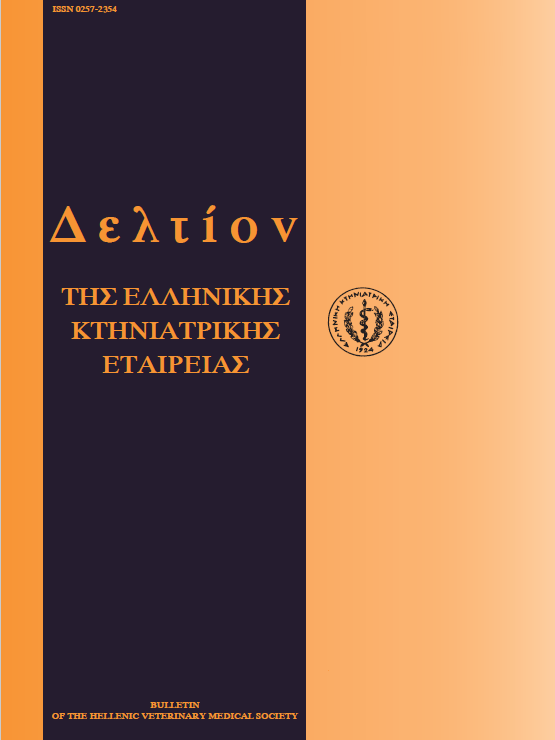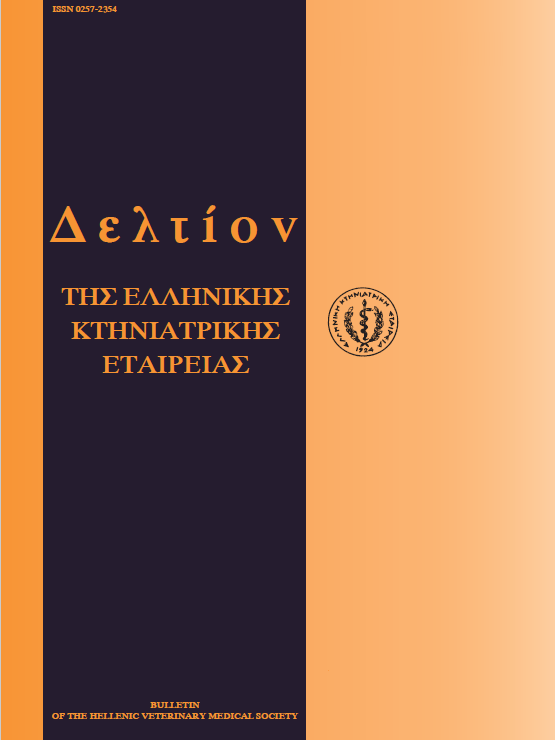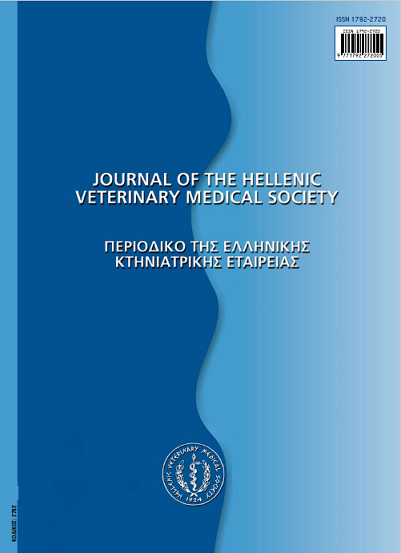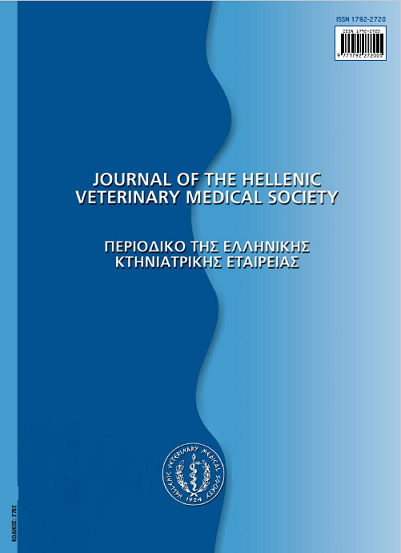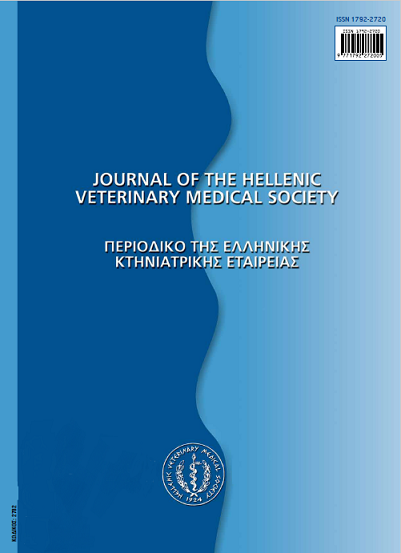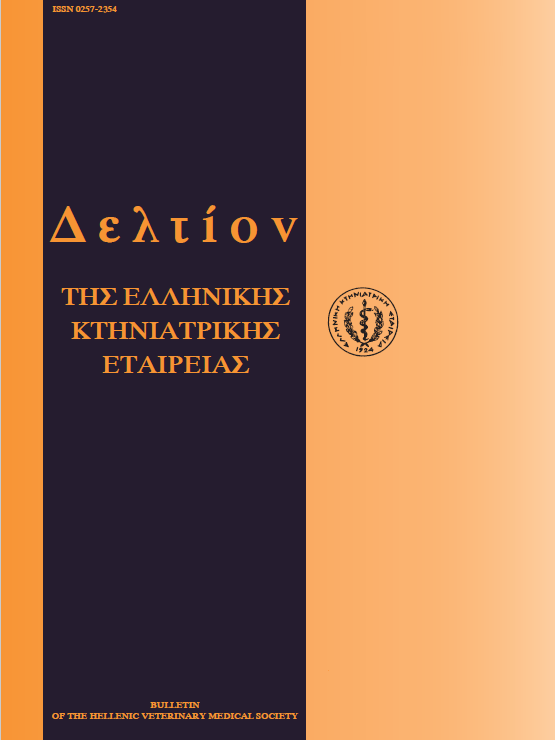Seasonal variation of plasma pepsinogen of sheep in the area of Tricala, Greece
Résumé
The objective of the project was to study the seasonal variation of plasma pepsinogen in sheep during the first year of their life under Greek environmental conditions. Twenty ewes from three flocks in the area of Trikala were used for the study of which seven became pregnant and had lamps. No anthelmintic treatment was applied. Plasma pepsinogen levels were higher (p< 0.001) during spring and summer than winder and autumn. The high pepsinogen levels were attributed to the rainfall and mild temperatures observed in the area of Trikala during winter which created favorable conditions for the development and survival of infective lrvae. No difference was observed between the pepsinogen levels of pregnant and non-pregnant animals. In addition, no correlation between pepsinogen levels and growth rate (GR) of the animals was observed.
Article Details
- Comment citer
-
THEODOROPOULOS (Γ. ΘΕΟΔΩΡΟΠΟΥΛΟΣ) G., KOSTOPOULOS (Ι. ΚΩΣΤΟΠΟΥΛΟΣ) J., KALOGIANNIS (Δ. ΚΑΛΟΓΙΑΝΝΗΣ) D., & PETRAKOS (Γ. ΠΕΤΡΑΚΟΣ) G. (2018). Seasonal variation of plasma pepsinogen of sheep in the area of Tricala, Greece. Journal of the Hellenic Veterinary Medical Society, 49(1), 54–58. https://doi.org/10.12681/jhvms.15746
- Numéro
- Vol. 49 No 1 (1998)
- Rubrique
- Research Articles

Ce travail est disponible sous licence Creative Commons Attribution - Pas d’Utilisation Commerciale 4.0 International.
Authors who publish with this journal agree to the following terms:
· Authors retain copyright and grant the journal right of first publication with the work simultaneously licensed under a Creative Commons Attribution Non-Commercial License that allows others to share the work with an acknowledgement of the work's authorship and initial publication in this journal.
· Authors are able to enter into separate, additional contractual arrangements for the non-exclusive distribution of the journal's published version of the work (e.g. post it to an institutional repository or publish it in a book), with an acknowledgement of its initial publication in this journal.
· Authors are permitted and encouraged to post their work online (preferably in institutional repositories or on their website) prior to and during the submission process, as it can lead to productive exchanges, as well as earlier and greater citation of published work.

